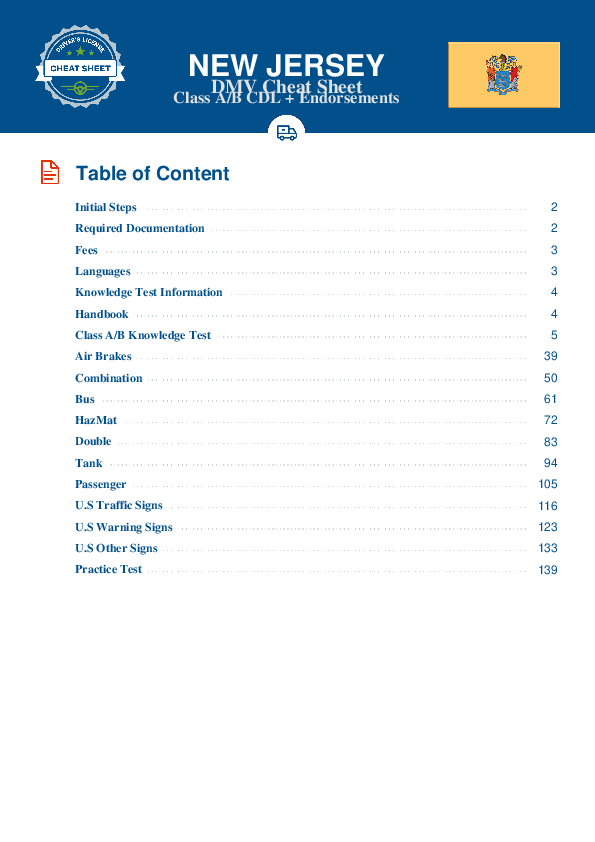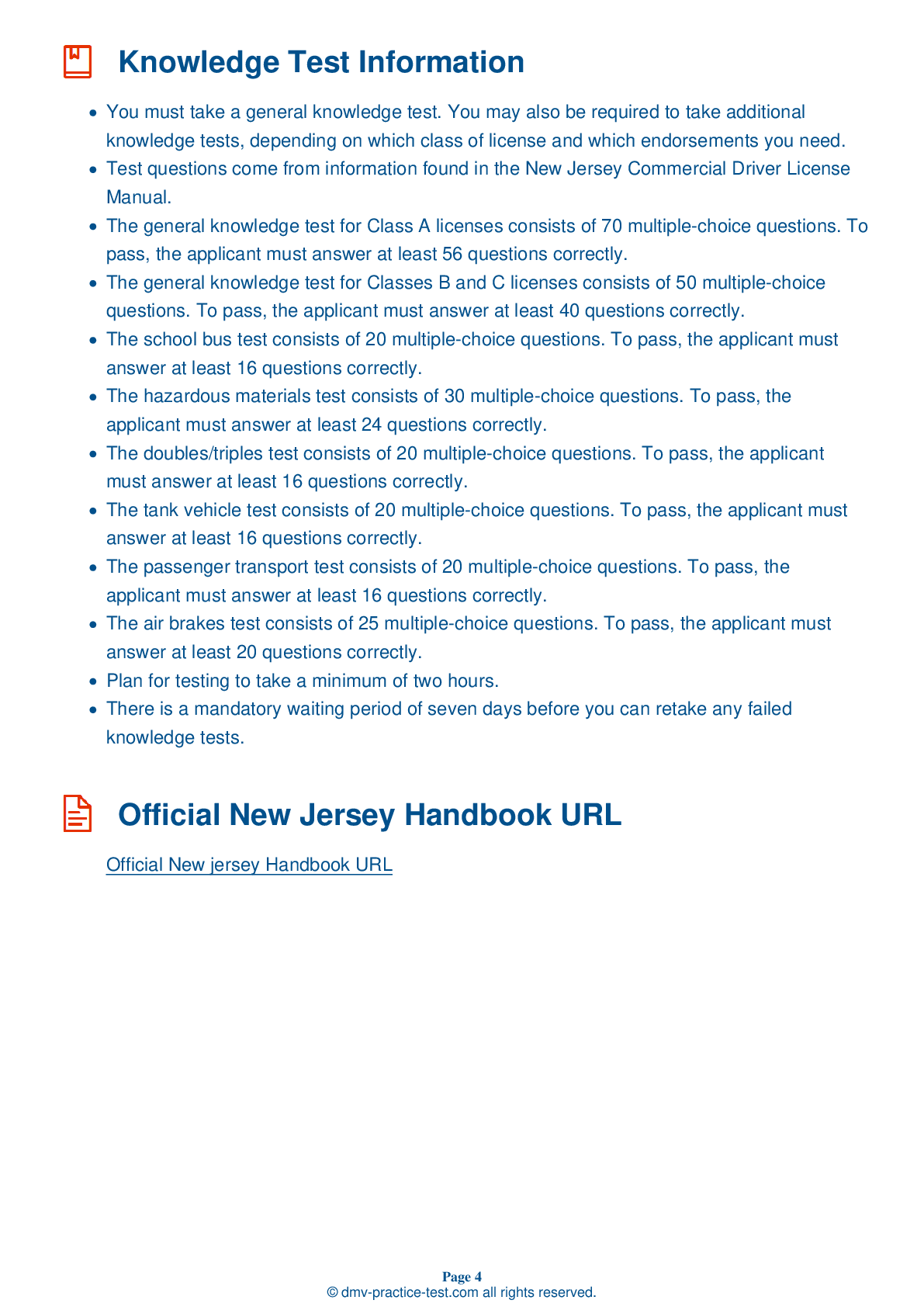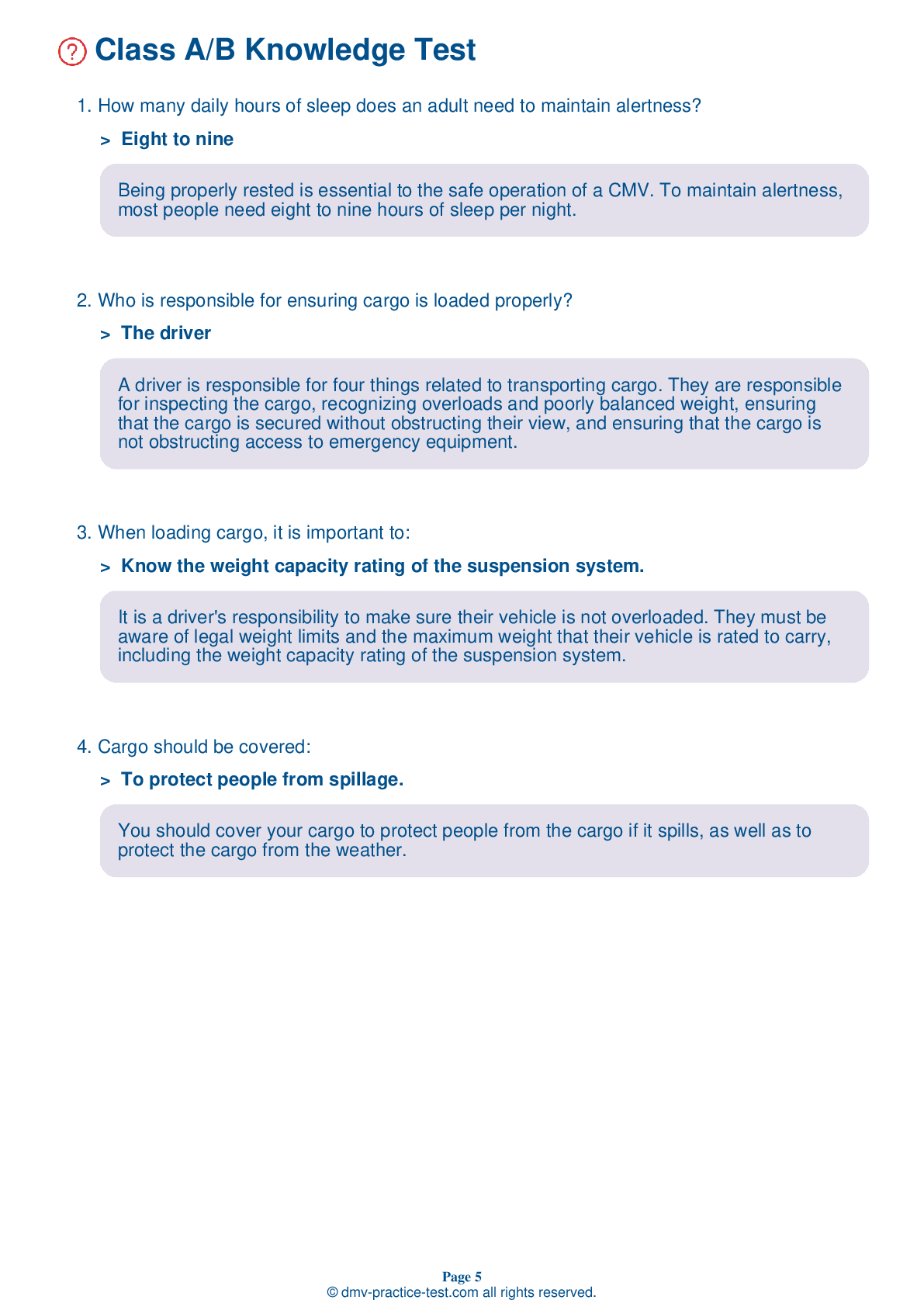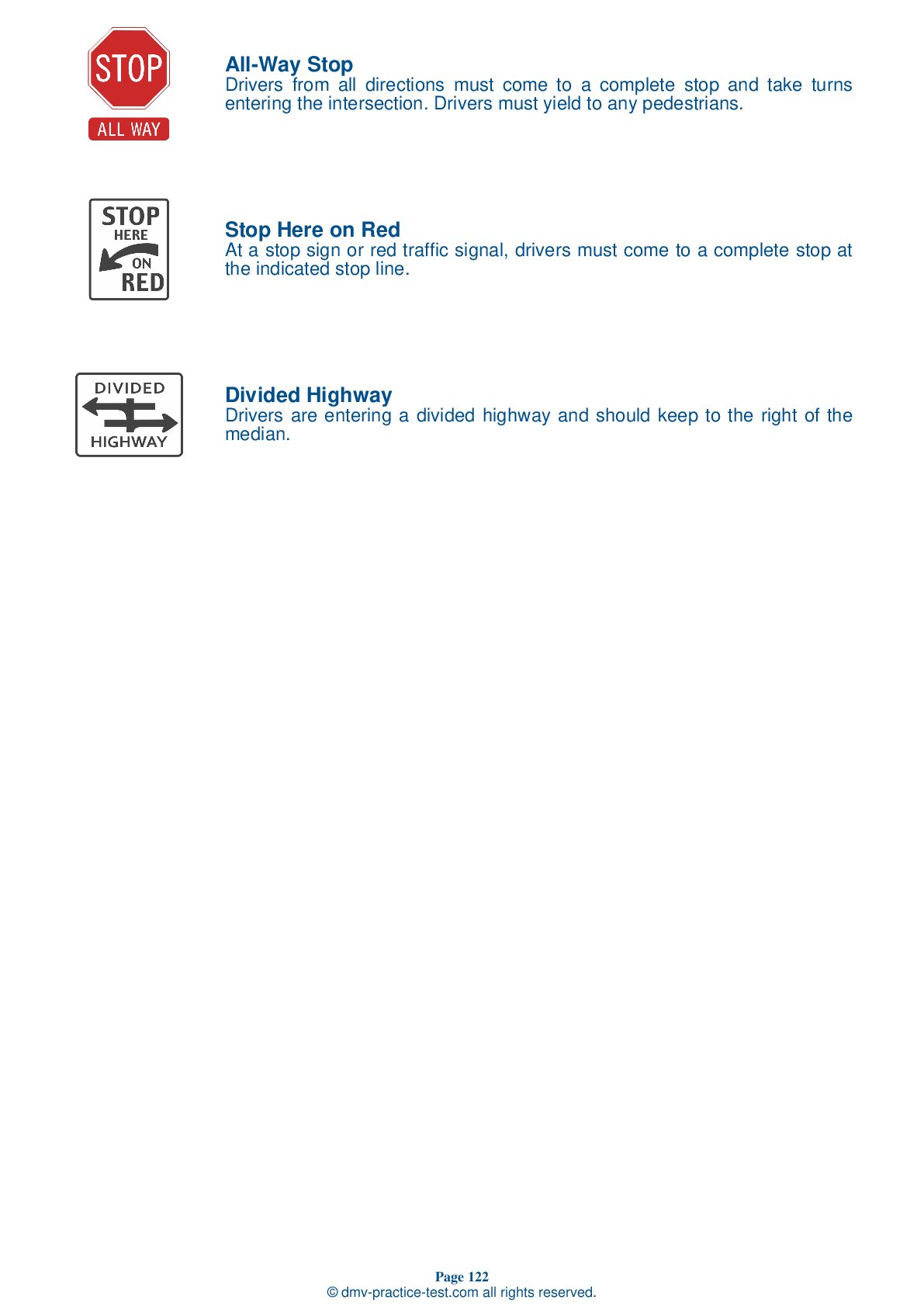Tank #1
Tank Endorsement Test | New Jersey 2026 #1
Train for FREE with our New Jersey tank endorsement practice test online. The official exam test consists of several obligatory parts, with all of them checking your knowledge of different blocks of road rules. If you need to obtain a NJ tank license in 2026, practice as much as possible. Free sample tests published on our website will help you check and improve your knowledge and boost your grades. Please bear in mind that DMV requirements for issuing a CDL tank vehicle endorsement may vary from state to state.
20
16
20
1 . When doing an inspection, make sure your brake pads are:
Free of oil and grease.
Potential problems to check for when inspecting brakes include cracked drums; shoes or pads with oil, grease, or brake fluid on them; and shoes that are missing, broken, or worn dangerously thin.
2 . Why are roads particularly slippery right after it begins to rain?
Some tires are not designed for rain.
Roads are often at their most slippery when rain is just beginning to fall. This is because water mixes with oil and grease on the road to create a slick surface. As rain continues, the oil and grease will wash away.
3 . A driver should always:
Drive above the speed limit.
While driving, you should continually scan the road ahead to spot potential hazards well in advance. Make emergency plans for how to deal with the hazards in the event that they become dangerous.
4 . When making tight maneuvers, you should:
Open the cargo door.
Mirror checks should be a normal part of your scanning routine. It is particularly important to make frequent mirror checks when driving in close quarters.
5 . Brake pads should:
Not have any oil or grease on them.
When inspecting your brakes, you should verify that the shoes and pads do not have any oil, grease, or brake fluid on them.
6 . To check the automatic transmission fluid level in some vehicles, the vehicle:
May have to be left running.
For some vehicles, you may need to leave the engine running to be able to check its automatic transmission fluid level.
7 . If you don't know if there is enough space for your vehicle to pass under a bridge, you should:
Drive on the shoulder.
If you can't tell if your vehicle will have room to fit under a bridge or other overhead object, you should slow down and find an alternate route, if possible.
2026 New Jersey | Frequently Asked Questions
A CDL Class A license in New Jersey is a commercial driver's license that allows the holder to operate any combination of vehicles with a Gross Combination Weight Rating (GCWR) of 26,001 pounds or more, provided the GVWR of the vehicle(s) being towed is in excess of 10,000 pounds. It includes tractor-trailers, truck and trailer combinations, and flatbeds.
A Class A CDL license in New Jersey allows operators to drive vehicles such as tractor-trailers, truck and trailer combinations, flatbeds, livestock carriers, and tank vehicles. It's also needed to operate any combination of vehicles with a Gross Combination Weight Rating (GCWR) of 26,001 lbs or more where the towed vehicle exceeds 10,000 lbs.
To obtain a Class A CDL license in New Jersey, you must be at least 18 years old (21 for interstate driving), have a valid driver's license, pass a vision test, and complete a medical examination. You'll also need to pass a knowledge test and skills test which includes a pre-trip vehicle inspection, basic vehicle controls, and on-road driving.
In New Jersey, you must be at least 18 years old to qualify for a Class A CDL license. However, to use it for interstate driving or to transport hazardous materials, you must be at least 21 years old. These age requirements are in place to ensure the safety of all road users.
Endorsements are not required for a Class A CDL license, but they allow you to operate specific types of vehicles or haul certain types of cargo. In New Jersey, endorsements include T (Double/Triple Trailers), P (Passenger), N (Tank Vehicles), H (Hazardous Materials), and S (School Bus). Each endorsement requires additional knowledge tests.
The Class A CDL skills test in New Jersey encompasses three parts: a pre-trip inspection to assess your ability to check the vehicle for safety issues, a basic controls test to evaluate your skills in controlling the vehicle, and a road test to confirm your ability to drive the vehicle safely in various traffic situations and conditions.
Yes, there are limitations for Class A CDL license holders in New Jersey. These may include restrictions based on medical conditions, failing certain parts of the skills test, or not meeting age requirements for interstate driving. Also, without specific endorsements, drivers may be restricted from operating certain types of commercial vehicles or transporting specific types of cargo.
Yes, in New Jersey, the written Class A CDL test is available in multiple languages, including Spanish. However, the Federal Motor Carrier Safety Administration requires that all commercial drivers demonstrate proficiency in English to read road signs, communicate with officials, and complete logs and other paperwork.
Yes, New Jersey Motor Vehicle Commission provides accommodations for individuals with disabilities taking the Class A CDL written test. You must submit a request for special testing accommodations. This may include extended time, a separate testing area, or assistance with reading the test. It's important to communicate your needs prior to scheduling your test.
If you don't pass the Class A CDL written test in New Jersey, you can retake it. However, you must wait at least 7 days before retaking the test. There's no limit to how many times you can retake the test, but each attempt requires a testing fee. Preparation and study are key to passing on your next attempt.



